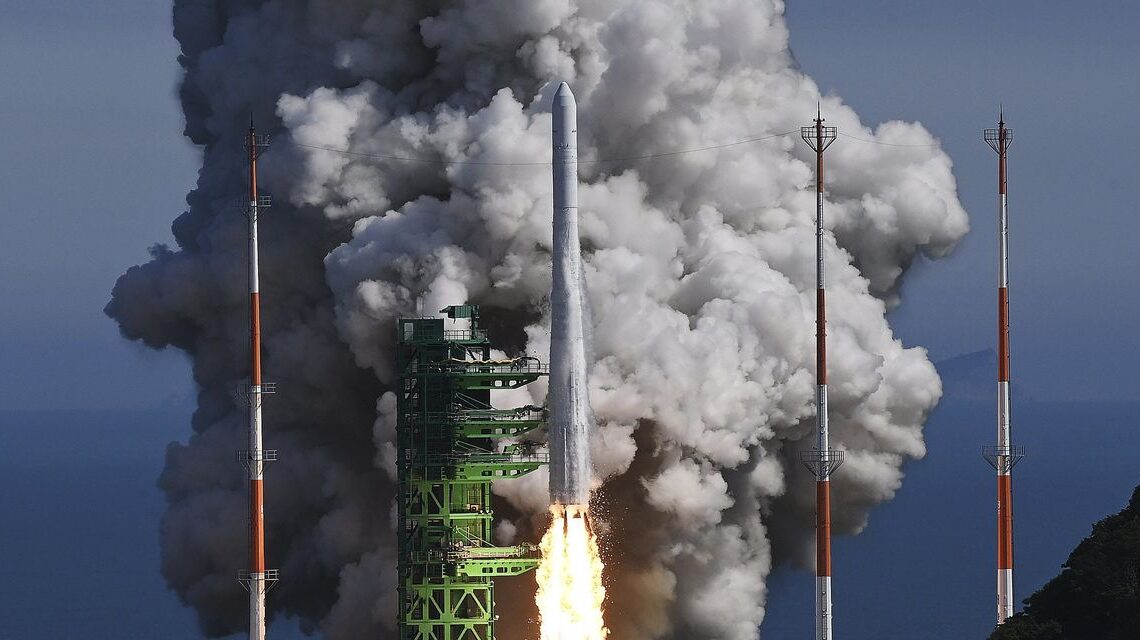SEOUL—South Korea joined an elite group of countries on Tuesday by successfully placing a large satellite into orbit, harnessing technology that could be used to monitor and track North Korea’s military activity.
In October, South Korea flew a three-stage, liquid-fuel rocket to a target altitude of about 435 miles. But the mission failed to place a dummy satellite into orbit because the space vehicle’s third-stage engine burned out sooner than expected. The Tuesday test had been delayed for several days due to a problem with an oxidizer tank sensor.
The 200-metric-ton rocket—called Korea Satellite Launch Vehicle II, or Nuri, which means “world” in Korean—blasted off at 4 p.m. local time from the country’s space center in Goheung, on the country’s south coast. It carried the 1.3-ton dummy satellite, a rocket performance verification satellite and four cube satellites for research. It reached a similar altitude as the October test.
Lee Jong-ho, South Korea’s science minister, called placing a satellite into orbit a monumental moment for the country’s space ambitions and promised further advances. “With additional launches we will work to increase the technical reliability and stability of the Nuri rocket,” Mr. Lee said at a post-launch briefing.
South Korea becomes the seventh country to have domestically developed rockets that can carry a satellite weighing more than 1 ton into space. The group includes the U.S., China and Russia.
The launch comes amid a strengthened deterrence posture by Seoul and Washington in response to Pyongyang’s ongoing weapons tests. North Korea has conducted more than a dozen missile tests this year, including an intercontinental ballistic missile capable of reaching the U.S. mainland.
South Korean President
Yoon Suk
-yeol, a conservative who took office last month, backs a stronger military posture against Pyongyang. During a meeting in Seoul with President Biden last month, Mr. Yoon agreed to expand joint military drills with Washington and committed to the deployment of U.S. strategic military assets to South Korea in the face of North Korea’s threats.
North Korean state media described the October launch of the Nuri rocket as a “definite failure,” saying Seoul has a long way to go before proving its launch capabilities….
Click Here to Read the Full Original Article at WSJ.com: World News…

